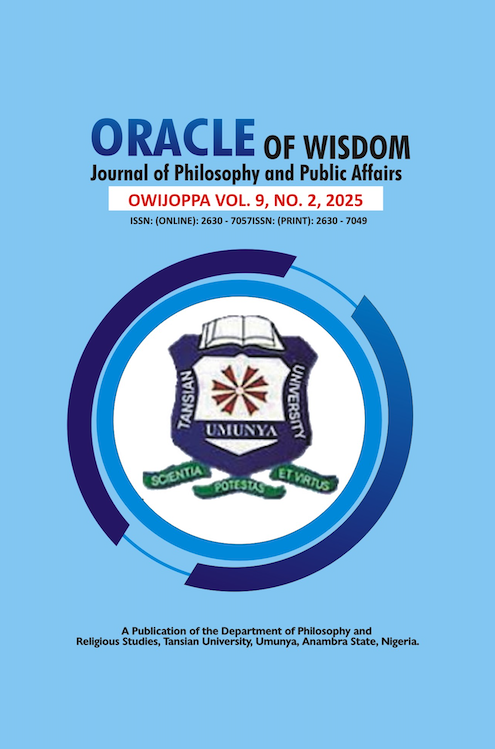THE ROLE OF ETHNIC CLEAVAGE IN THE BREAKUP OF UNITED ANCIENT ISRAELITE KINGDOM: LESSON FOR NIGERIAN POLITICAL ELITES
Résumé
The United Kingdom of Israel and Judah was divided into two kingdoms during the reign of Rehoboam, and ten tribes except Judah and Benjamin refused to accept Rehoboam as their king. The proximate cause of the division was not Rehoboam's managerial foolishness but Solomon's earlier decision to locate most of the splendid buildings to the territory of the tribe of Judah. It is normal to pay tax, labour for one's country development but it breeds suspicion, animosity and conflict when proceeds of the communal labour is not evenly or equally shared. Like the Ancient Israel, the amalgamation of Northern and Southern protectorates of 1914 in Nigeria was a union of many regions and multiple tribes. Hence, the further division of Nigeria into six geopolitical zones for even and effective sharing of Nigerian economy, political and educational resources across the zones was a welcome idea. However, In Nigeria today, there is concentration of the country's resources coming majorly from the South/South Geopolitical zone to the Northern part of the country. This study therefore examines Solomon's ethnic cleavage and centralisation policy as precursors to the divided kingdom of Israel with existential Afro-centric interpretation of the lacuna to Nigerian Geopolitical structure and the lesson therein for Nigerian political elites. Narrative Criticism and contextual African Hermeneutical approaches are employed in this study. Nigerian political elites should adopt equality and equity


